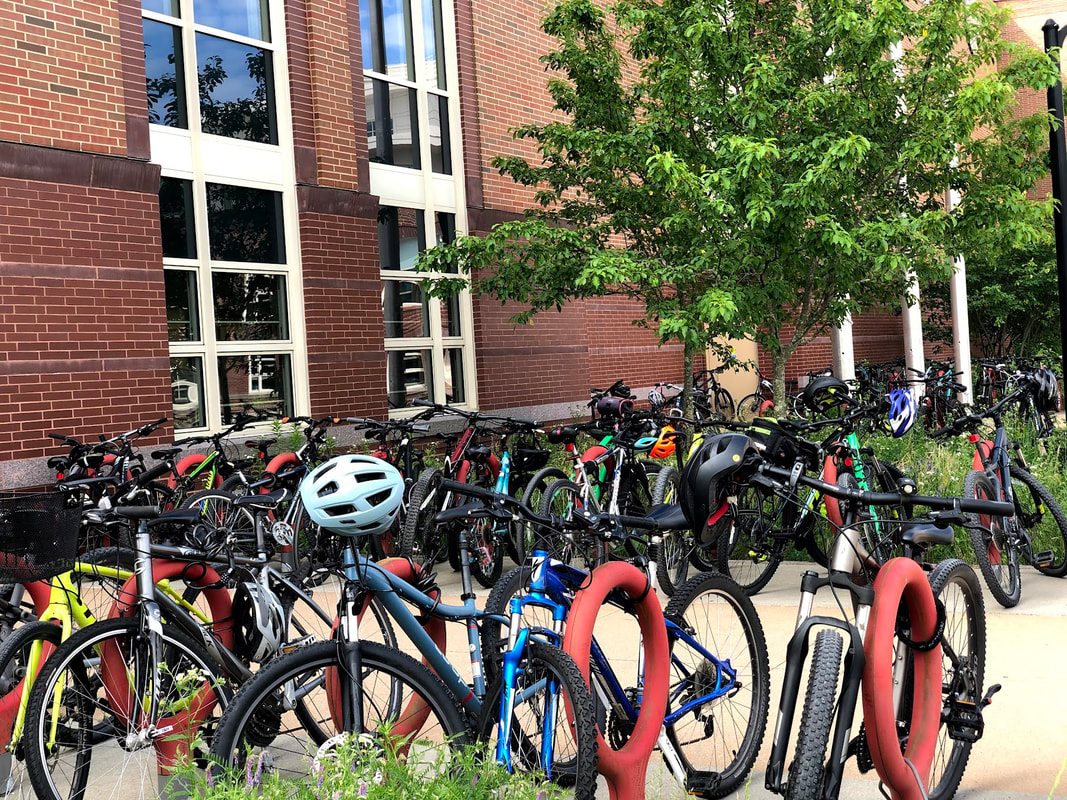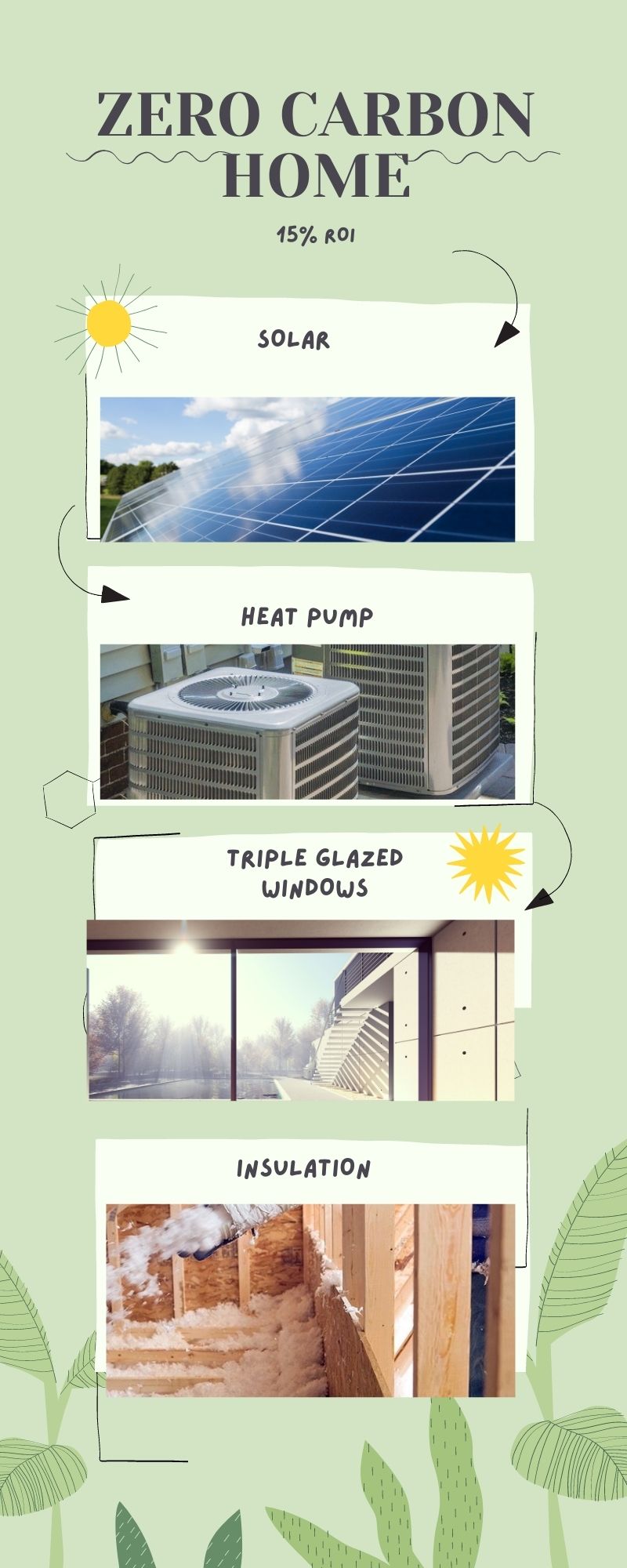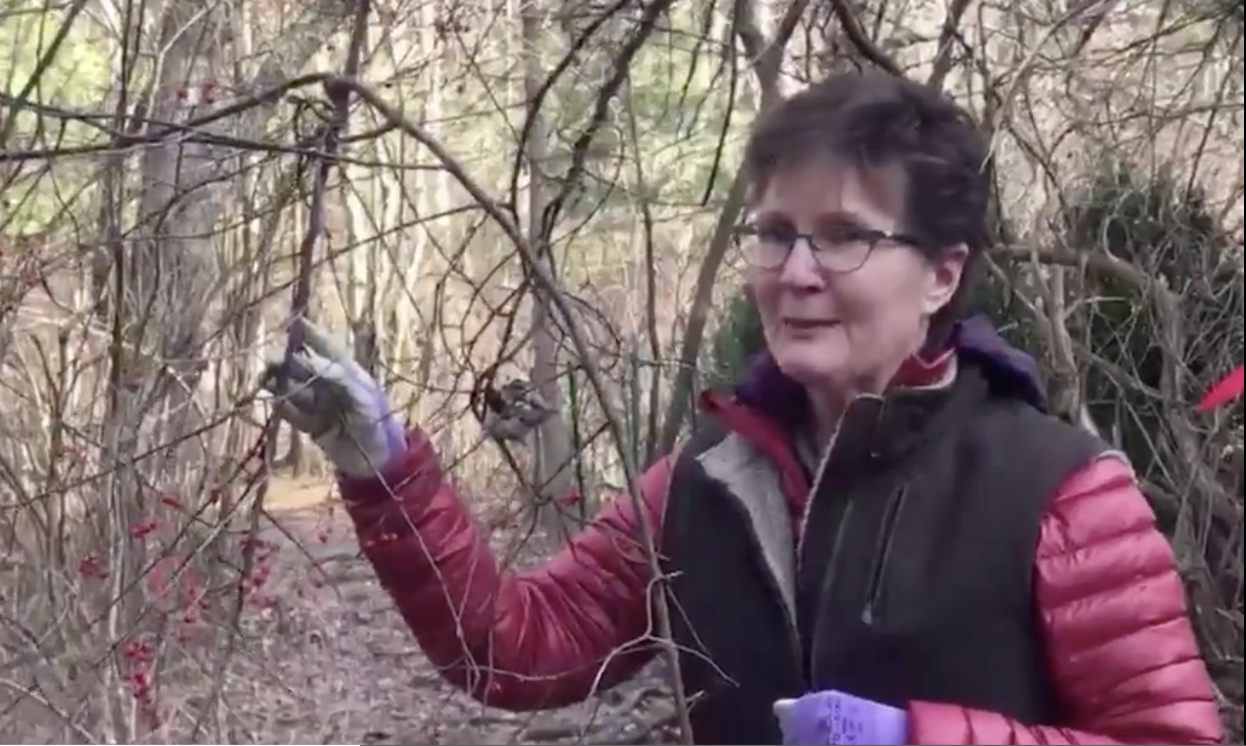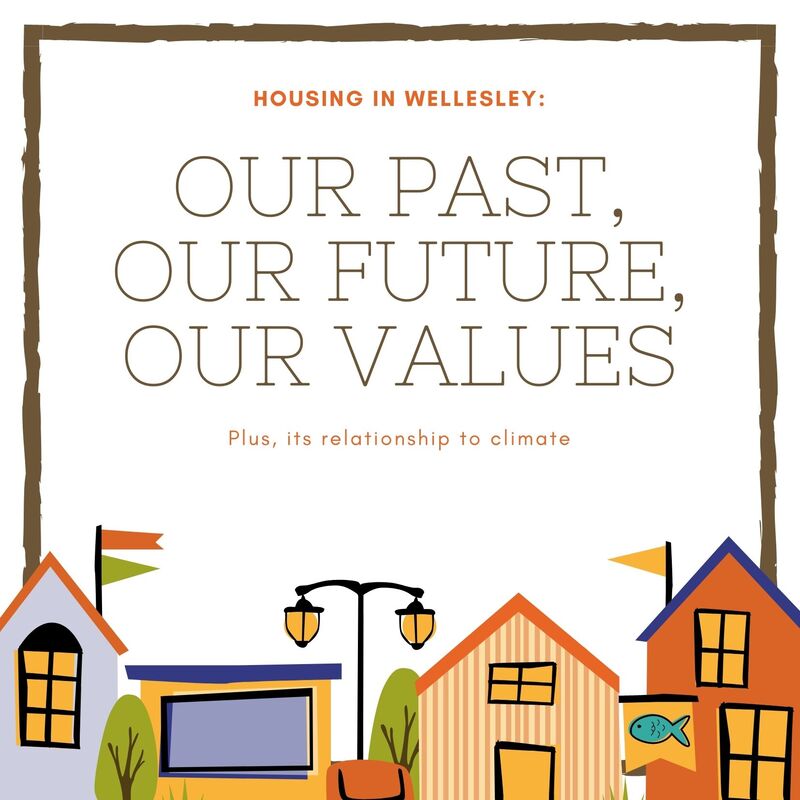|
Thursday, Sept. 30, 4-5 p.m.
via Zoom Free, open to all Energy New England Drives Electric Learn about new EV choices available this year and get your questions answered by EV experts at this National Drive Electric Week virtual event. REGISTER _________________________________________________________________________________ Thursday, Sept. 30, 7:30 p.m. via Zoom Free, open to all EVs, PHEVs, Hybrids: Car Options for Today A Wellesley resident and EV owner will share her firsthand perspective on EVs and answer attendee questions at this Sustainable Wellesley virtual event. REGISTER _________________________________________________________________________________ Sat. Oct. 2, 1-4 p.m. Free, open to all Wellesley EV Showcase (part of Wellesley’s Wonderful Weekend) View different makes and models of EVs in-person and chat with Wellesley residents about their experiences owning and driving EVs. This event takes place at the Cameron Street parking lot in Wellesley. Come see and talk to owners of Chevy Volt, Chevy Bolt, Ford Mustang, Ford Fusion, Mini Cooper, Mini Countryman, Nissan Leaf, Tesla S, Tesla Y, Tesla 3, Toyota Prius, Volkswagen ID4, Chrysler Pacifica, and more! REGISTER The Wellesley Department of Public Works (DPW) is helping cut carbon emissions with a significant investment in electric landscaping equipment. Starting this week, residents will see this new equipment in use in parks and open spaces and the entire Town will reap the benefits of these positive climate actions.
The department recently expanded its rechargeable battery-powered fleet, using funds from its Fiscal Year 2022 budget to purchase a large EGO riding mower and EGO brand cordless outdoor equipment including: two electric push lawn mowers, a pole hedge kit, six carbon fiber trimmers, and 4 leaf blowers. These new tools are in addition to other small rechargeable equipment like trimmers and leaf blowers that DPW bought in 2020. All are the same make and batteries for the equipment are interchangeable. The purchases were spurred by panel discussions a year ago sponsored by the Town of Wellesley, Lexington DPW, Wellesley Natural Resources Commission, and Sustainable Wellesley in partnership with two nonprofits, American Green Zone Alliance and Quiet Communities, Inc. Look for DPW crews using the new equipment at four established green spaces: Central Park near the Wellesley Square post office, Church Park in front of the Village Church, the Wellesley Police Department grounds, and the Tolles Parsons Center on Washington Street. These high-traffic parklands showcase pesticide-free landscaping and low-maintenance native plantings to foster birds, bees and other useful insects. Because they run on rechargeable batteries, this equipment eliminates fumes and vibrations that are harmful to operators and passersby, and have lower decibel levels to reduce use noise. To keep equipment charged when away from power sources, DPW Director Dave Cohen is mounting charging stations on a trailer. “We are eager to see how this set up works and if the equipment can give crew members the sustained service that is required during long work days,” said Cohen. According to Paul DePhillips, Assistant Superintendent of the DPW Park & Tree division, the team is also considering adding a solar panel to the roof of the trailer to provide some additional charging capability and reduce or even eliminate plug-in charging time. DePhillips’s crew has also added four electric chainsaws. The most expensive piece is the rider electric mower, which retails for about $4,999 and can cut up to two acres on a single battery charge. The motor emits a sound that resembles a ‘faint whine,’ instead of a louder mowing noise. In the coming months, DPW will be collecting data to quantify the benefits of shifting to electric equipment and will present this information to the Town to help inform future decisions about expanding the electric landscaping program. Climate Action in Wellesley The electric landscaping equipment program is helping support the Town’s climate action goals to reduce greenhouse gas (GHG) emissions 50% below 2007 levels by 2030 and reach net-zero by 2050. Wellesley is currently developing a Climate Action Plan that will serve as a roadmap for reaching these goals. To learn more visit https://www.wellesleyma.gov/1584/Climate-Action- Plan. Create Healthy Habits While Helping Wellesley Reduce Its Greenhouse Gas Emissions
The new school year is a chance to begin new routines. Recent climate studies show that 30% of Wellesley's traffic is school-related transportation. Instead of driving, start some new school traditions this fall. - Get together with friends and walk to school - Form neighborhood walking groups with other parents, caretakers, families – take turns leading the group. - Ride bikes or scooters with neighbors. -Check in with the Wellesley Public Schools to see if there is space on the bus: it is free if you live more than 2 miles from school. More information on Wellesley's upcoming “Safe Routes to School” walking and biking initiative is coming out soon. Learn more about it from the Town's Mobility Committee members (see below). Better yet, consider participating in it by serving as a parent representative for your school. Wellesley Select Board member Colette Aufranc at [email protected] Wellesley School Committee Chair Catherine Mirick at [email protected] The Town of Wellesley is looking to understand the specific retail, restaurant and business wants, needs and patterns in Wellesley Square in an effort to bring vitality and new businesses to our community.
Imagine, a pedestrian weekend main street, re-use and plastic free stores, no styrofoam, EV charging stations, community refrigerator, a fix it shop, in town composting and recycling, etc. Let them know what YOU want by filling out this survey. It takes less than a minute to fill out the survey. Last week after the Massachusetts Legislature put its climate bill on the Governor’s desk for the second time, Governor Baker signed it into law. This sweeping and historic statute is the first piece of climate legislation passed in Massachusetts in over a decade, creating the foundation for bold and robust statewide climate policy for years to come.
Specifically, the Roadmap Bill strengthens Massachusetts’s emissions reduction targets to establish a 50% reduction by 2030, a 75% reduction by 2040 and a goal of Net Zero greenhouse gas emissions by 2050. Having targets like these will hold the Commonwealth accountable to reduce emissions in our energy, transportation and building sectors. To make these goals, the act stipulates the development of a Net Zero Energy stretch building code, which it empowers communities to adopt by 2022. It also mandates energy efficiency standards for appliances by 2025, and authorizes another 2,400 megawatts of offshore wind power. It also provides protections for Environmental Justice communities. What does this mean for Wellesley? Later this month, Wellesley’s Sustainable Energy Committee (SEC) will be updating the Town’s greenhouse gas (GHG) emission reduction goals and bringing them to the Annual Town Meeting (ATM) 2021. These goals, contained in Article 24, call for reductions in town-wide GHG emissions of 50% below Wellesley’s 2007 baseline by 2030, 75% below Wellesley’s 2007 baseline by 2040, and net zero town-wide GHG emissions by 2050. These science-based goals follow State policy, are in line with The United Nations Intergovernmental Panel on Climate Change, support Wellesley’s Unified Plan, and echo similar climate actions taken by an increasing number of Wellesley’s peer communities across the Commonwealth. Residents are encouraged to contact their Town Meeting Members letting them know they support these emissions reductions goals for our community. Wellesley residents are taking advantage of being home organizing and trying new things. The Town is a buzz sharing things and offering items up to their community! Looking to test drive a Cello? Ready to give away a chair/weights/books/mugs/etc...There are numerous ways to offer up, and receive, gently used home furnishings, puzzles and even clothing right here in Wellesley!
For residents on Facebook, there are groups dedicated to getting people to reuse! Wellesley Give & Take, Greater Boston Suburbs Give and Take and Buy Nothing Wellesley, allow adults in the area to offer or request certain gifts and services. The goal is for residents to share the resources they have to minimize additional purchases. If you have an item you do not use anymore, you can post it in the group. In addition, if there is something you need, you can post a request for that item. According to the U.S. Environmental Protection Agency, each person generates almost 5 pounds of waste each day which ultimately ends up in landfills. By sharing resources with the community, you are not only minimizing your waste, but also your neighbors’. For those not on Facebook, you still have options! Try the online website The Freecycle Network, which is similar to the Facebook groups. At Freecycle, residents can page through items for offer, or post your own. There are a myriad of items either available or wanted on the website including student desks, car seats, ribbon, sleds, and much more. If you still haven't found the right place to offer items you are ready to pass on, try the Wellesley Recycling and Disposal Facility (RDF) allows residents to leave items at the reusable area from April to November. The Reusables Area, also called Take-it-or-Leave-It, is a swap section run by the Friends of Recycling Volunteers (FOR), a community based nonprofit organization made up of Wellesley residents dedicated to helping the Town’s recycling program. Check out the RDF web site for details about hours and protocols. The RDF also offers residents a place to bring- and take- books and certain health care items such as crutches, wheel chairs, canes. Reusing items is great for the environment and can save you money! Thanks to Kate Lapierre for contributing to this story! We received a lot of positive feedback on David Green’s Zero Carbon Home presentation which you can watch here. He used clear language - although we detected an accent (jk) - to inspire and entertain us.
His story is like many of ours. David decided he wanted to cut his carbon footprint. He had no idea how to do it. He looked for books on the topic, but nothing was that clear so he figured out how to do it himself and is now sharing that information with us. Good news is that he lives in Dover so there is no tropical magic happening. What did happen is that he:
Check out his website for all of the insider tips. Thank you David! Got Problems with Invasive Shrubs?
Cricket Vlass, Wellesley Town Horticulturist and Landscape Planner, will share ways to identify, remove, and replace them on Tuesday, February 23 from 7-8PM via Zoom. Register in advance here for this virtual educational event: Invasive plants are not only a threat to conservation lands, they also pose a threat in your yard. In this 1-hr Wellesley Conservation Land Trust webinar learn:
This free event is part of the Wellesley Conservation Land Trust Educational Series and co-sponsored by the Wellesley Free Library, Natural Resources Commission and Sustainable Wellesley.  Sustainable Living Wellesley Facebook page was all a flutter as the new year began. It all started with Courtney’s simple question about what others are doing for sustainable swaps in their homes. This is such a great question as we all aim to ditch the bad habits from last year and aim for new ones that go easier on the planet (and our wallets)! A key factor in finding sustainable items is getting items that can be reused numerous times rather than once. Let's start in the kitchen:
Moving on to the laundry room:
Bathroom:
Closet. Yup, we said it. Your closet!:
We loved the communal idea generation on a topic near and dear to all of us. These items may seem small individually, but at large can make a difference. These were just a few ideas shared in that chat. For more ideas, join Sustainable Living Wellesley Group on Facebook! Thanks to Kate Lapierre for contributing to this story! On Thursday, January 14, 7:30pm join a community discussion about housing in Wellesley with:
Jennifer has served local, regional, state, and national housing, community development, and planning organizations and she recently became a Climate Reality Leader with the Climate Reality Project. The discuss will center around how Wellesley’s zoning created our desirable community, but also contributes to Wellesley’s increasing lack of affordability. How can we ensure that Wellesley’s housing supports our values? What action steps can we take to allow a greater diversity of people to call Wellesley their home? To register for free Zoom event, please click here. This event is presented by the League of Women Voters of Wellesley, and the Wellesley Free Library and sponsored by many organizations, including Sustainable Wellesley. |
Categories
All
|
Sign up for updates! |
Contact |
Support us! |
Follow us!Copyright © 2024 By Sustainable Wellesley
|










 RSS Feed
RSS Feed